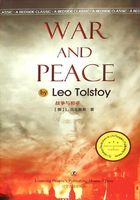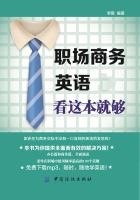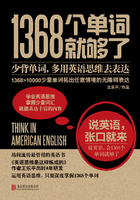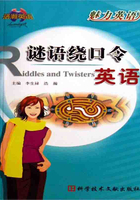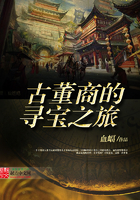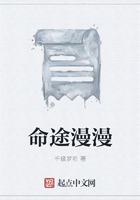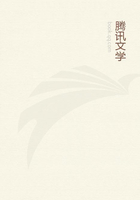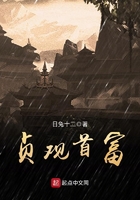第一节试题分析
一、试题介绍Compound Dictation中的空格, 一般情况下前几个是单词填空, 要求不能有拼写错误;后几个是句子填空, 可以写出大意, 无需与原文一模一样。
文章体裁与内容同短文理解相似, 主要考查考生听音、笔记、拼写、概括能力, 所以不仅要能听懂, 也要善于书面表达。由于猜测因素减少, 某些考生对此有几分畏惧。
其实, 与短文听力理解相比, 听写题型也有其优势:
1.大部分内容已以文字形式出现, 可以较好地进行听前预测。如果善于利用上下文内容, 考生可以得到许多提示。
2.录音播放三次, 信息重复次数多, 利于考生捕捉重要信息。
3.句子答案无需原句, 只要听懂内容可以自己概括。二、应试技巧复合式听写由两部分组成。一是单词听写, 要求同学们毫无差错地填出短文所缺单词。另一种是补全信息。一般是, 每段的第一句主题句已经给出, 要求填出具体细节内容说明主题, 可以使用听到的原话, 也可以使用自己的语言。
通过卷面文字捕捉信息, 找出线索、了解大意
“复合式听写”材料多为说明文(Exposition), 这一体裁的文章具有主题突出、条理分明、层次清楚、语言简洁、逻辑性强的特点。文章的开头或段首多半有主题句(topic sentence), 之后的段、句进一步具体扩展、说明或论证主题句。根据“复合式听写”样题, 听写第二部分二、三自然段段首和段尾均有完整的主题句。考生应利用一切机会, 如考前空隙或播放考试指令时间, 浏览试卷中该项下文字部分, 尤其是主题句, 根据主题句预测文章发展线索和大意。缩小了内容范围, 考生听音时更具针对性和准确性, 心理放松, 更为自信, 使自己在考试中处于主动地位。
即使“复合式听写”材料为其它体裁的文章, 听音前浏览一下试题也大大有裨益。因为文章具有一致性和连贯性的特点, 从试题中我们总会搜索到一些有参考价值的材料。
听写结合, 双管齐下
根据“复合式听写”新题型通知说明, 第一遍是全文朗读, 要求考生注意听懂全文内容。由于听音前考生已浏览了卷面文字, 对听力材料有了大致的了解, 因此听读第一遍时, 考生可以适当地填写些单词和做些笔记, 听为主, 记为辅。要做好“复合式听写”, 考生需多多实践, 获取较强的边听边记能力。听音贯穿着期待、预知、分析、综合、推理和判断等一系列过程, 考生应同时快速记下几个关键词, 而在记笔记时, 又要能有效、专注地去听, 获取信息理解全文。
听写中边听边记具有必要性, 听为手段, 写为目的;听和记两种不同的语言技能在“复合式听写”中有着紧密的联系, 相互促进。第一遍记下关键词有助于第二遍听写时启发记忆, 提示要点, 同时也减轻了第二遍笔记的任务, 使笔记更加充实、完整, 依次写出的内容要点才会更加全面、准确。另一方面, 边听边记也具有可行性, 试想学生听外籍教师上课, 听了一遍不是也可以记下授课要点吗?只要多加练习, 其实也不难做到。提高记笔记的效率
一般考生听完两遍基本可听懂句意, 但只凭记忆写要点, 往往容易有疏漏和错误。足够信息量的笔记是写好要点的重要条件, 但如何在有限的时间内记录下更多的内容呢?这里介绍几种方法。
首先, 可使用缩略语。例如:可用esp.代especially, sth代something, apprec代appreciation等。没有缩略语的词汇, 如字母较少的单词, 可完整写出, 如gift, take, 字母较多的单词只写该词前几个字母。这里的基本要求是快速、省时, 并能表达含义。缩略语不一定要求规范, 甚至可用些符号, 所记内容不一定要求完整, 只要能起到提示的作用, 自己能看懂就行了。
其次, 由于“复合式听写”第二部分朗读时没有停顿, 即使使用缩略语也难记下全文, 因此考生应有选择地记笔记。英语中实词具有表意功能, 而虚词多具语法功能, 所记词应以实词为主。
另外, 因为“复合式听写”第二部分只要求写出内容要点, 这样考生应重点记下句中的中心词。例如:短语a thankyou gift、greatly appreciated和quite acceptable中的定、状语便可略去不记。通过这几种方法, 考生大大压缩了所记的词语, 赢得了时间, 精练了内容, 增大了笔记的信息量, 为填好内容要点创造了条件。
书面表达内容要点
“复合式听写”全文朗读2遍后停顿5分钟, 让考生根据所听和所记内容写出第二部分主要意思。答题时, 考生应针对以上内容及第一部分和第二部分的主题句进行分析、判断, 概括。文章要点显然不可缺漏, 但也无需有闻必录, 多多益善, 考生应分清主次, 有所取舍, 从这个意义上说, “复合式听写”还要求考生具有一定的逻辑分析归纳能力。文字表达应简洁、通顺、准确。分析样题参考答案, 我们不难发现它有以下特点:
(1)将内容要点分列为几点, 清楚明白, 一目了然。
(2)要点尽可能用完整的简单句表达, 不宜用短语, 句式也不宜过于复杂。
(3)尽量省去语句中可有可无的修饰成分。
总而言之, 考生应用有限的词语简洁明了地概括出所听内容的全部要点, 使内容要点和语言表达达到有机的完美统一。
例如:
Nursing,as a typically female profession,must deal constantly with the false impression that nurses are there to wait on the physician.As nurses,we are (36)to provide nursing care only.We do not have any legal or moral(37)to any physician.We provide health teaching,(38)physical as well as emotional problems,(39)patientrelated services,and make all of our nursing decisions based upon what is best or suitable for the patient.If,in any(40),we feel that a physician s order is(41)or unsafe,we have a legal(42)to question that order or refuse to carry it out.
Nursing is not a ninetofive job with every weekend off.All nurses are aware of that before they enter the profession.The emotional and physical stress.However,that occurs due to odd working hours is a(43)reason for a lot of the career dissatisfaction.(44).That disturbs our personal lives,disrupts our sleeping and eating habits,and isolates us from everything except jobrelated friends and activities.
The quality of nursing care is being affected dramatically bythese situations.(45).Consumers of medically related services have evidently not been affected enough yet to demand changes in our medical system.But if trends continue as predicted,(46).
这篇复合式听写短文最后三个长句子中没有非常疑难的词语,难度并不高,基本保持了之前的水平,主要是考察了考生对长句子的整体理解和概括能力。比如,46空的句子虽然是最长的,但概括起来是最简单的。首先找到句子的主干they will find that...。其次,that后面也可以提一个主干hospital care will be provided by new nurse。其中的new,inexperienced,and sometimes inadequately trained明显是并列结构,完全可以只用一个词new来代替。
该题的答案是:
(36)licensed
(37) obligation
(38) assess
(39) coordinate
(40) circumstance
(41) inappropriate
(42) responsibility
(43) prime
(44) It is sometimes required that we work overtime, and that we change shifts four or five times a month.
(45) Most hospitals are now staffed by new graduates, as experienced nurses finally give up trying to change the system.
(46) they will find that most critical hospital care will be provided by new, inexperienced, and sometimes inadequately trained nurses.
检查、核对内容要点
“复合式听写”第三遍朗读供考生进行核对, 核对是最后必不可少的环节, 考生应抓住时机弥补前两遍听音时所忽略或遗漏的内容, 进一步修改和完善自己的答案。
听写第一部分要求考生填入所缺单词, 有时考生只凭辨音仍难以准确地判断出应为何词, 此时考生可运用自己的语言知识, 修正听力细节上的不足。主要可以从语法结构、词语搭配、意义连贯、上下文等多角度去推测、分析和判断;并正确拼写出单词。而在核对听写第二部分内容要点表达时,则应注意力求要点完整、准确, 尽量减少语言中语法、拼写等错误。
听写是一种有效的综合性测试, 可以考查学生词汇量、拼写、句法、听力、理解、记笔记和一定的书面表达等多方面的要素和技能, 研究人员发现听写成绩与许多其他技能的相关系数很高。笔者深信全面打好语言基本功是提高听写能力的重要途径, 但听写训练具有自身的科学性和技巧性, 多练加巧练则定可取得事半功倍的成效。
第二节试题训练
Passage 1
Today I want to help you with a study reading method known as SQ3R. The letters stands for five steps in the reading (1):Survey, Question, Read, Review, Recite. Each of the steps should be done carefully and in the order (2).
In all study reading, a survey should be the first step. Survey means to look quickly. In study reading, you need to look quickly at titles, words in darker or larger print, words with (3) letters, (4) and charts. Don t stop to read complete sentences. Just look at the important divisions of the materials.
The second step is question. Try to form questions based on your survey. Use the question words who, what, when, where, why and how.
Now you are (5) for the third step. Read. You will be reading the titles and important words that you looked at in the survey, but this time you will read the examples and (6) as well. Sometimes it is useful to take notes while you read. I have had students who (7) to underline important points, and it seemed to be just as useful as notetaking. What you should do, whether you take notes or underline, is to read actively. (8).
The fourth step is review. Remember the questions that you wrote down before you read the material. You should be able to answer them now. (9).
The last step is recite. (10).
Today I want to help you with a study reading method known as SQ3R. The letters stands for five steps in the reading (1)process:Survey, Question, Read, Review, Recite. Each of the steps should be done carefully and in the order (2)mentioned.
In all study reading, a survey should be the first step. Survey means to look quickly. In study reading, you need to look quickly at titles, words in darker or larger print, words with (3)capital letters, (4)illustrations and charts. Don t stop to read complete sentences. Just look at the important divisions of the materials.
The second step is question. Try to form questions based on your survey. Use the question words who, what, when, where, why and how.
Now you are (5)ready for the third step. Read. You will be reading the titles and important words that you looked at in the survey, but this time you will read the examples and (6)details as well. Sometimes it is useful to take notes while you read. I have had students who (7)preferred to underline important points, and it seemed to be just as useful as notetaking. What you should do, whether you take notes or underline, is to read actively. (8)Think about what you are reading as a series of ideas, not just a sequence of words.
The fourth step is review. Remember the questions that you wrote down before you read the material. You should be able to answer them now. (9)You will notice that some of the questions were treated in more detail in the reading. Concentrate on those. Also review material that you did not consider in your questions.
The last step is recite. (10)Try to put the reading into your own words. Summarize it either in writing or orally.
Passage 2
“Other countries have a (1);in England we have weather.” This (2), often made by (3) to describe the weather (4) of their country, is both revealing and (5). In no country other than England, it has been said, can one experience four (6) in the course of a (7) day!
(8). At midday, (9). And then, in the late afternoon the sky will be clear, (10).
“Other countries have a (1)climate; in England we have weather.” This (2)statement, often made by (3)Englishmen to describe the weather (4)conditions of their country, is both revealing and (5)true. In no country other than England, it has been said, can one experience four (6)seasons in the course of a (7)single day!
(8)Day may break as a sweet spring morning; an hour or so later black clouds may appear from nowhere and the rain may be pouring down. At midday, (9)conditions may be really wintry with the temperature down by almost about eight degrees or more centigrade. And then, in the late afternoon the sky will be clear, (10)the sun will begin to shine, and for an hour or two before darkness falls, it will be summer.
Passage 3
The life of Albert Einstein is a (1) in many ways for both natural and political scientists. He always employed the scientific method of (2) truth from facts. He (3) believed, as he put it, that “there is nothing incomprehensible about the (4), ” and through painstaking work, he (5) many of the phenomena thought to be “incomprehensible” in his day. Einstein s (6) showed the great importance of theoretical work to scientific effort. The concepts he developed led to many of the scientific (7) which have shaped modern technology.
Einstein (8). But he himself rejected the efforts to put him in a position far above other people. (9).
Actually, Einstein s theory of relativity and his other scientific works are not that hard to understand with a little study. (10).
The life of Albert Einstein is a (1)model in many ways for both natural and political scientists. He always employed the scientific method of (2)seeking truth from facts. He (3)firmly believed, as he put it, that “there is nothing incomprehensible about the (4)universe, ” and through painstaking work, he (5)explained many of the phenomena thought to be “incomprehensible” in his day. Einstein s (6)contributions showed the great importance of theoretical work to scientific effort. The concepts he developed led to many of the scientific (7)advances which have shaped modern technology.
Einstein (8)is often portrayed as a “genius” whose theories are so complicated that no one but a few best scientists can understand. But he himself rejected the efforts to put him in a position far above other people. (9)He was well known for his humble manner and often stressed to interviewers that his accomplishments would certainly have been achieved by others had he never lived.
Actually, Einstein s theory of relativity and his other scientific works are not that hard to understand with a little study. (10)But beyond learning Einstein s theories, his overall attitude towards science as a tool to liberate humanity is something from which everyone can and should learn.
Passage 4
The last part of the (1) will be an age of (2) as man has never known. There are eight (3), at least thirty moons, and thousands of asteroids. Their (4) area is about 250 times that of the earth. (5) will not be able to land on some of them. But that still (6) to be explored an area ten times great as the (7) of the earth.
Exploring space (8). They conquered (9).
In the past when explorers set sail into the unknown, (10).
The last part of the (1)century will be an age of (2)exploration as man has never known. There are eight (3)planets, at least thirty moons, and thousands of asteroids. Their (4)total area is about 250 times that of the earth. (5)Spaceships will not be able to land on some of them. But that still (6)leaves to be explored an area ten times great as the (7)continents of the earth.
Exploring space (8)may seem terrifying to some people. No doubt explorers of the past were terrified by the great empty oceans that lay before them. They conquered (9)their fears, crossed the oceans, and built the New World.
In the past when explorers set sail into the unknown, (10)they had to say goodbye to everything they knew at home. Space explorers will not face such great loneliness. Even when they travel far beyond the sun, they will be able to send messages back.
Passage 5
Australia is a huge (1) continent that lies to the south of Asia. People in Australia (2) in size, color and origins. Its big cities lie on the southeast (3), where most Australians live. Australians are suburban people. The suburbs (4) the cities for many miles, and so (5) transport is of great importance. As the (6) grows, its industries grow to a (7) level of production, a wider range of products.
The Australian works hard, but he likes his leisure. (8).
Australia is a strange land, a land of vast expanses, rich and productive valleys, snow fields and deserts, also a land with unique animals. (9).
Now Australia is changing. (10).
Australia is a huge (1)island continent that lies to the south of Asia. People in Australia (2)vary in size, color and origins. Its big cities lie on the southeast (3)coast, where most Australians live. Australians are suburban people. The suburbs (4)surround the cities for many miles, and so (5)efficient transport is of great importance. As the (6)economy grows, its industries grow to a (7)higher level of production, a wider range of products.
The Australian works hard, but he likes his leisure. (8)The climate makes outdoor activities popular.
Australia is a strange land, a land of vast expanses, rich and productive valleys, snow fields and deserts, also a land with unique animals. (9)Much of the continent is dry, the driest continent of all. So water is very precious, more precious than all other resources.
Now Australia is changing. (10)The land of wool and wheat is now a land of largescale industry and mining. The cost of developing the new mineral discoveries is enormous, but the rewards are great too.
Passage 6
A unique laboratory at the University of Chicago is (1) only at night. It is a dream laboratory where (2) are at work studying dreamers. Their findings have revealed that everyone dreams from three to seven times a night, although in (3) life a person may (4) none or only one of his dreams.
While the subjects—usually students—sleep, special machines (5) their brain waves and eye movements as well as the body movements that (6) the end of a dream. Surprisingly, all subjects sleep (7).
Observers report that a person usually fidgets before a dream. (8). As soon as the machine (9).
Observers have found that if the dreamer is wakened immediately after his dream, (10).
A unique laboratory at the University of Chicago is (1)busy only at night. It is a dream laboratory where (2)researchers are at work studying dreamers. Their findings have revealed that everyone dreams from three to seven times a night, although in (3)ordinary life a person may (4)remember none or only one of his dreams.
While the subjects—usually students—sleep, special machines (5)record their brain waves and eye movements as well as the body movements that (6)signal the end of a dream. Surprisingly, all subjects sleep (7)soundly.
Observers report that a person usually fidgets before a dream. (8)Once the dream has started, his body relaxes and his eyes become more active, as if the curtain had gone up on a show. As soon as the machine (9)indicates that the dream is over, a bell wakens the sleeper. He sits up, records his dream, and goes back to sleep—perhaps to dream some more.
Observers have found that if the dreamer is wakened immediately after his dream, (10)he can usually recall the entire dream. If he is allowed to sleep even five more minutes, his memory of the dream will have faded.
Passage 7
I (1) St Thomas s Hospital as a (2) student at the age of 18 and spent five years there. I was an (3) student, for my heart was not in it. I had always wanted to be a (4). So in the evenings, I wrote and read. Before long, I wrote a (5) which I sent to a (6). It was published during my last year at the (7) and had something of a success.
It was of course an accident, (8). Looking back now, I realize I was taking a fearful risk.
The next ten years were very hard, and I earned an average of $100 a year. (9).
One of the students at St Thomas s Hospital asked the famous doctor with whom I had worked whether he remembered me. (10).
I (1)entered St Thomas s Hospital as a (2)medical student at the age of 18 and spent five years there. I was an (3)unsuccessful student, for my heart was not in it. I had always wanted to be a (4)writer. So in the evenings, I wrote and read. Before long, I wrote a (5)novel which I sent to a (6)publisher. It was published during my last year at the (7)hospital and had something of a success.
It was of course an accident, (8)but naturally I did not know that. I felt I could afford to give up medicine and make writing my profession. So, three days after I graduated from the school of medicine, I set out for Spain to write another book. Looking back now, I realize I was taking a fearful risk.
The next ten years were very hard, and I earned an average of $100 a year. (9)Then I had a bit of luck. Within a short while I had four plays running in London at the same time. Nothing of the kind had ever happened before. I became the talk of the town.
One of the students at St Thomas s Hospital asked the famous doctor with whom I had worked whether he remembered me. (10)“Yes, I remember him quite well, ” he said. “He is one of our failures, I m afraid”.
Passage 8
Today there is (1) scientific speculation about living on the moon. When man will begin life on the moon s surface is still not (2). But (3) believe that colonization will take place in three steps. First, there will be (4) periods of exploration with temporary shelters. These (5) will be followed by longer stays with housing under the surface of the moon and (6) necessities brought by the colonizers themselves. Finally, colonies that are (7) will be established.
The principal job of the early settlers will be to stay alive. (8). After this is done, (9).
(10). Industrial diamonds might be produced on the moon.
Today there is (1)considerable scientific speculation about living on the moon. When man will begin life on the moon s surface is still not (2)determined. But (3)experts believe that colonization will take place in three steps. First, there will be (4)increasing periods of exploration with temporary shelters. These (5)periods will be followed by longer stays with housing under the surface of the moon and (6)daily necessities brought by the colonizers themselves. Finally, colonies that are (7)selfsupporting will be established.
The principal job of the early settlers will be to stay alive. (8)They will have to plant crops under huge domes to produce food and oxygen and find water sources. After this is done, (9)the settlers will have time to explore the possibilities of commercial development and to make discoveries important to science.
(10)The characterisics of the moon make it bad for human survival but may make it ideal for certain kinds of manufacturing. Industrial diamonds might be produced on the moon.
Passage 9
The young man was a French (1), the son of one of the richest and most important (2) of France. He had heard about the revolution taking place in America. He wanted to go and help.
He was only eighteen years old. He was tall, handsome, and a familiar (3) in the high society of Paris. His family tried to stop him. They asked the King of France to throw him into jail in order to stop him, but the young man had already (4) his own ship and (5) some young friends to go with him. He (6) and came to America. The young man was the Marquis de Lafayette.
Upon his arrival, he (7) that no one knew him here. He had been promised that he would be an officer in the American army, (8). Instead, he offered to serve as a volunteer—without pay. Congress accepted. Later Lafayette met Washington. (9).
Once toward the end of the war, (10). Using his own personal credit, Lafayette went to the merchants of Baltimore and, at his own expense, bought a new uniform for each man—two thousand in all. In this way, his men were able to go on fighting.
The young man was a French (1)nobleman, the son of one of the richest and most important (2)families of France. He had heard about the revolution taking place in America. He wanted to go and help.
He was only eighteen years old. He was tall, handsome, and a familiar (3)figure in the high society of Paris. His family tried to stop him. They asked the King of France to throw him into jail in order to stop him, but the young man had already (4)bought his own ship and (5)gathered some young friends to go with him. He (6)escaped and came to America. The young man was the Marquis de Lafayette.
Upon his arrival, he (7)discovered that no one knew him here. He had been promised that he would be an officer in the American army, (8)but Congress said that it wanted no more foreign officers. Lafayette sat down and cried. He could not go back to France. Instead, he offered to serve as a volunteer—without pay. Congress accepted. Later Lafayette met Washington. (9)A great affection grew up between the two men, as between father and son. Lafayette became Washington s personal aide.
Once toward the end of the war, (10)the men under Lafayette s command were all in rags. Lafayette asked Congress for new uniforms. Congress had no money with which to buy uniforms. Using his own personal credit, Lafayette went to the merchants of Baltimore and, at his own expense, bought a new uniform for each man—two thousand in all. In this way, his men were able to go on fighting.

